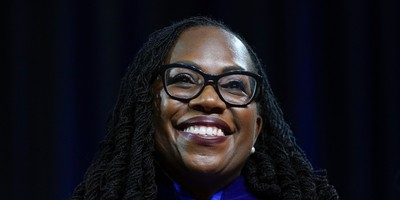I have a rule about Tweeting: If I delay for even a nano-second from pressing the "Tweet" button, I don't send it. This was an example of something that I did not send yesterday afternoon:
How much of the keening over the death of Mandela is by people feeling guilt over largely ignoring his having been in jail for 3 decades?
I didn't send that, because I wasn't sure of who was in charge of what during the 27 years that Nelson Mandela was incarcerated from 1962 to 1989.
Now I do.
In those years - for every single day of those 27 years - a Democrat was Speaker of the U.S. House: John McCormack (D-MA), Carl Albert (D-OK), Tip O'Neill (D-MA), Jim Wright (D-TX).
During those same years, a Democrat was Majority Leader of the U.S. Senate from 1962 through 1980: Mike Mansfield (D-MT) and Robert C. Byrd (D-WV).
Howard Baker (R-TN) was Majority Leader beginning in 1981 and was succeeded by Robert Dole (R-KS) for two years.
Democrat Robert Byrd (D-WV) was Majority Leader for the last two years of Mandela's incarceration.
To keep you from having to count on your fingers, here is the list of Presidents:
John F. Kennedy (D)
Lyndon Johnson (D)
Richard Nixon (R)
Gerald Ford (R)
Jimmy Carter (D)
Ronald Reagan (R)
I went through all that because since the death of Nelson Mandela was announced last week there has been a strong odor of blaming Republicans in the United States for the existence of Apartheid in South Africa generally and the plight of Mr. Mandela in particular.
Recommended
The first legislative attempt to create sanctions against South Africa was the Comprehensive Anti-Apartheid Act of 1972, which went nowhere (Democrats ran the House and Senate, Richard Nixon was President).
The full title was:
An Act To prohibit loans to, other investments in, and certain other activities with respect to, South Africa, and for other purposes
A similar bill, with the same title wasn't reintroduced for 13 years with the Comprehensive Anti-Apartheid Act of 1985. That was filibustered by Republicans because the Reagan White House felt it was an untoward intrusion on the President's foreign policy prerogatives. Reagan proposed his own menu of sanctions that he felt would not unduly harm the Black majority in South Africa.
It passed a year later but was vetoed by Reagan for the same reasons. The House and Senate overrode his veto and the President issued a statement which read, in part:
Today's Senate vote should not be viewed as the final chapter in America's efforts, along with our allies, to address the plight of the people of South Africa. Instead, it underscores that America-and that means all of us-opposes apartheid, a malevolent and archaic system totally alien to our ideals.
The debate, which culminated in today's vote, was not whether or not to oppose apartheid but, instead, how best to oppose it and how best to bring freedom to that troubled country.
Sometime in all that - I think it was the early 80's - there was a period when people in Washington, DC were demonstrating in front of the South African embassy and being hauled in by the D.C. police.
I was Communications Director at the National Republican Congressional Committee and I remember asking why I shouldn't join them and get myself arrested, because I felt a certain solidarity with a large group of people being treated like cattle because of a racial identity over which they had no control.
I don't remember who talked me out of it, but one of the arguments was I would go to jail, which was not determinative; and I would probably be fired, which most certainly was.
So, I didn't go.
I don't qualify for any medals in this, either.
Times were certainly different in 1962 when Mr. Mandela was first sentenced to jail. It had only been eight years since the U.S. Supreme Court had decided "Brown vs Board of Education which made segregation in public schools Unconstitutional, so we weren't exactly sprinting down the road to racial equality, either.
Mr. Mandela was not a saint. He was a man. He reached out to people and causes that he believed would advance his people and their causes. That included Communists like Fidel Castro at a time when the Soviet Union and China were numbers one and two on the U.S. enemies list.
He was also, as President of South Africa, a staunch opponent of the U.S. invasion of Iraq and the subsequent deposing of Saddam Hussein, calling it a modern "holocaust."
But, Nelson Mandela was not an ideologue. He was a realist trying to make the best deal he could for his country in a world in which his only weapons were his personality, his presence, and his vision.
He was well armed.

























Join the conversation as a VIP Member